As an Amazon Associate I earn from qualifying purchases.
Hungarian paprikash is one of that nation’s iconic dishes, and there are a great many variations on the recipe. I make mine with pheasant, but chicken is traditional — as are the nokedli dumplings I serve this with. Paprikash is a great option for all white meat poultry, not just chicken or pheasant.
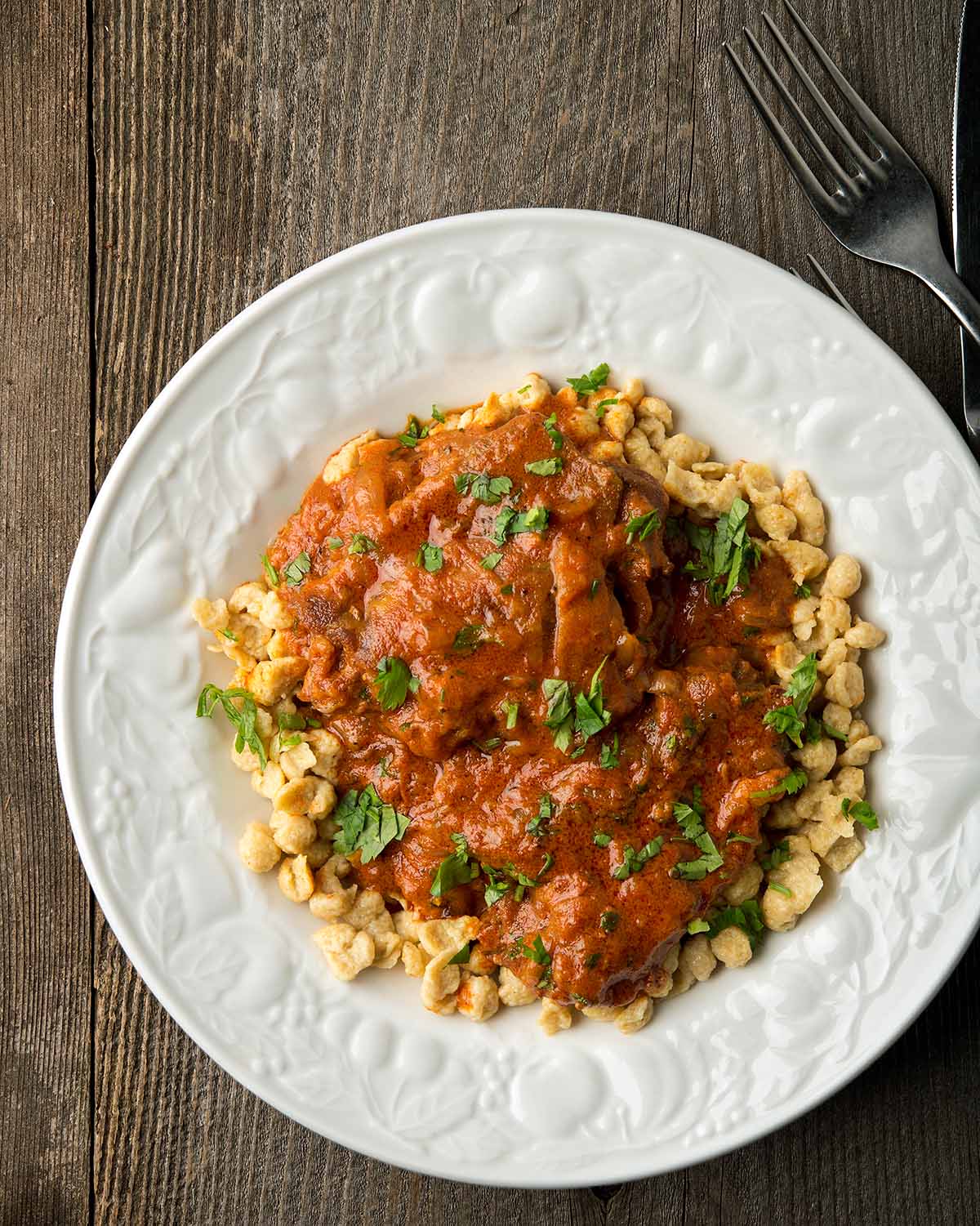
No lie: Making Hungarian food is an adventure fraught with danger; the Magyars take their food very, very seriously, and they will let you know if you screw it up. Problem is, most of these dishes—goulash is the classic case—have as many variations as it has cooks.
Hopefully, this version will pass muster with the Hungarians among us. At the very least, it tastes great and is easy to make. My recipe is an amalgam of those I’ve eaten and served over the years.
My Hungarian paprikash uses pheasant, which is in many ways closer to the original recipe, which historically used older stewing hens. Pheasants are tougher than all but the oldest stewing hens, so it works nicely. If you are using chicken, you won’t need to simmer the meat as long; start checking it at 1 hour.
Pork and beef paprikash also exist, so if you wanted to do that with those meats, or venison, use a stewing cut like shoulder or neck or shanks.
A word on the paprika. You can use either sweet or hot paprika, but I prefer sweet Hungarian paprika for paprikash. It’s darker and sweeter than other versions, like California-made paprika, although it can be tough to find in supermarkets.
Don’t let a lack of real-deal Hungarian paprika stop you though. Use whatever you can find, just make sure it’s red. Like pretty, vibrant red. Paprika fades over time and with exposure to light. No faded, dusty paprika for paprikash, OK?
And if you’re into it, here’s how to make paprika at home.
Nokedli Dumplings
Paprikash is often served over nokedli, Hungary’s version of German spätzle. You can, of course, use store-bought spätzle, but these dumplings are easy to make.
In a perfect world, you’d have a spatzle maker to form the little nokedli, but you can also get all old school and flick little pieces of the wet dough/batter off a cutting board with a knife. Or you can run the batter through a perforated pan or a colander with wide holes.
You can make these dumplings a day in advance if you oil them up, then store in a lidded container in the fridge. Reheat by sauteing in butter.
Serving and Storing Paprikash
Hungarian paprikash will keep in the fridge a few days, but doesn’t freeze well. If you want to freeze or pressure can your paprikash, do so before you add the sour cream and flour. Then freeze or follow pressure canning instructions for stew.
The dumplings can be frozen after they’re cooked. And if you don’t want to bother with nokedli, serve your paprikash with rice or boiled potatoes, and some hearty rye bread is a good option, too.
If you liked this recipe, please leave a ⭐️⭐️⭐️⭐️⭐️ rating and a comment below; I’d love to hear how everything went. If you’re on Instagram, share a picture and tag me at huntgathercook.
Equipment
- 1 spatzle maker (optional)
Ingredients
PAPRIKASH
- 1 whole pheasant, cut into serving pieces
- 3 tablespoons bacon fat lard, or butter
- Salt
- 2 very large yellow onions, sliced root to tip
- 1/3 cup paprika, Hungarian if possible
- 2 bay leaves
- 2 jarred roasted red peppers, chopped
- ½ cup sour cream, at room temperature
- 1 tablespoon flour
- ¼ cup chopped parsley
DUMPLINGS
- 3 eggs, lightly beaten
- A healthy pinch of salt
- 1 1/2 cups warm water
- 3 cups flour
Instructions
- Heat the bacon fat over medium-high heat in a large Dutch oven or other heavy, lidded pot. Brown the pheasant pieces well, taking your time. Chances are you’ll need to do this in batches.
- When the pheasant has been nicely browned, remove the meat. Add the onions to the pot and cook over medium heat until they brown at the edges, about 8 to 10 minutes. You might need to add another tablespoon of fat. Salt them as they cook.
- Mix in the paprika, bay leaves, and roasted red peppers, followed by about 1 cup of water. Return the pheasant to the pot. You want the liquid to come up to the sides of the pheasant, but not submerge it. You’ll likely need another cup or two of water. Add some salt, cover the pot, and cook on low heat until the pheasant is tender, about 90 minutes to 2 hours.
- While the paprikash is cooking, make the dumplings by mixing all the ingredients together. You want it the consistency of pancake batter—not a dough—so add enough water to get there. Bring to a boil a large pot of water, and salt it well. Put the batter into a spätzle hopper, a colander with wide holes, or a perforated pan and set this over the hot water. Let the batter drip through the holes, making little dumplings (if you’re using a colander or a perforated pan, a rubber spatula will help move the batter through the holes).
- Let the dumplings boil on the surface for a minute or two, then scoop them out with a slotted spoon and put them on a baking sheet. Coat with some butter or oil so they don’t stick, and set aside.
- When the pheasant is tender, whisk the sour cream and the flour in a bowl, and then add a little of the cooking liquid to this. Stir well and repeat several times, then pour the contents of the bowl into the pot and stir. (This process keeps the sour cream from curdling.)
- Turn off the heat and add the chopped parsley. Serve the paprikash over the nokedli.
Notes
- 1 large chicken or blue grouse
- 4 partridges or 2 Cornish game hens or ruffed grouse
- Turkey leg and thighs
- 4 to 8 quail
- 1 domestic rabbit or 2 cottontails
Nutrition
Nutrition information is automatically calculated, so should only be used as an approximation.

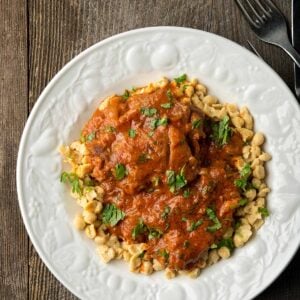
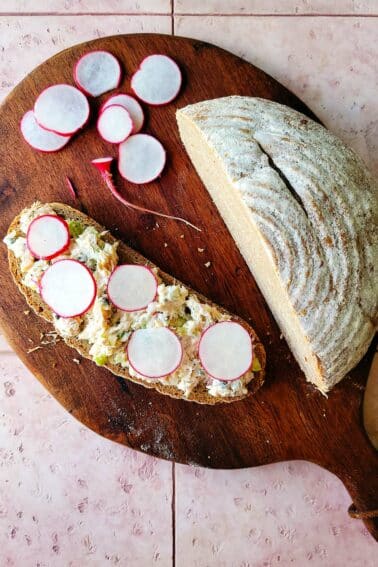
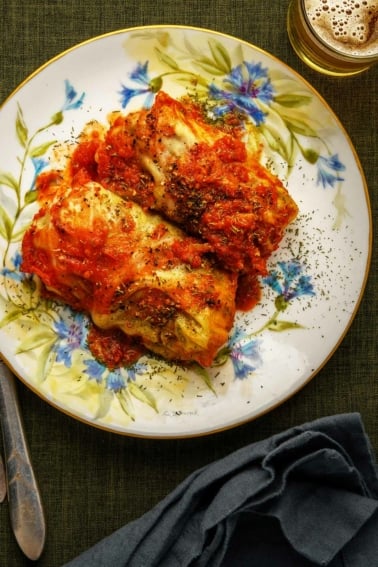
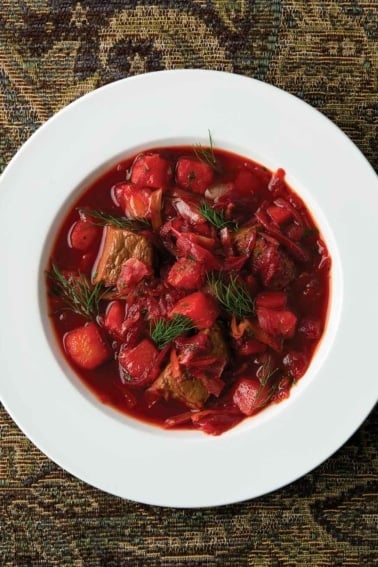
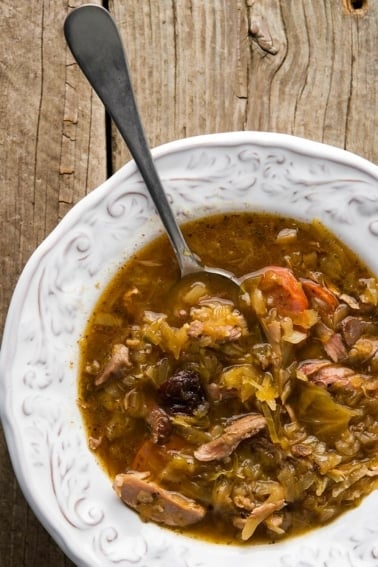
It was really flavorful.
We made this for dinner tonight – Hank’s recipe was a hit as always! We only had chicken on hand, but I can see how wild game would really shine in this dish. The noodles were delicious and super easy to make – we will be incorporating them into other favorite meals from now on!
I’ve made so many of your recipes and they are all amazing! I want to try this with turkey legs/thighs from one I hunted. One question though: If you use canned roasted red peppers wont they become pure mush after they cook for another 2 hours with the meat? I was thinking of adding them after the meat is cooked. Bad idea?
Mark: Yes, they do get very soft. If you want them to stay firm(er), add the canned roasted peppers in the final 20 minutes.
A great variant on a fantastic dish! My Hungarian mother in law uses fresh Hungarian peppers instead of the roasted ones, the roasted ones do add a little pizzaz for sure. You can also just spoon batter into the pot of water, it makes for a denser chunkier nokedli that adds a really nice texture to the meal.
I was a little concerned about the amount of sweet paprika used in this recipe, but I forged ahead and glad I did. Excellent dish and even better the next day. I had shank deer meat, and it worked so well.
Every recipe from the saurkraut, problano chili soup and venison Diane have been outstanding.
Thanks for sharing these recipes with us.
Sorry.. Chicken Papricash isn’t Chicken Paprikash if it doesn’t have the Dumplings!
They are half the point, besides the Paprika!
Andrea: You do realize the dumplings are in the recipe, yes?
Love Papeikash! I’m curious what happens when you freeze it though … why doesn’t it freeze well?
Allan: It’s the sour cream. It breaks when thawed. You could leave out the sour cream, freeze, then add when you reheat it.
As an open-minded half-Hungarian, I really enjoy seeing this recipe. The extra peppers look very interesting. I’ve made this dish many times and many different ways. Looking forward to trying this version. Thank you!
As a person of Yugoslavian ancestry who married a man with Hungarian/Polish/Ukrainian ancestry, I can attest to the validity of your recipe 🙂 It was Sunday dinner many a day. The addition of the peppers might not be universally traditional but sounds wonderful; I bet it elevates the ‘pepperiness’ of the dish, totally enhancing the paprika. I’m definitely going to include that – thank you!
My wife’s relatives immigrated to the US from Hungary and paprikash has been a regular meal for generations. Your recipe is really close to the “old world” dish we prepare today. Pheasant works great, but chicken thighs with skin-on is a really good substitute!
You are right… dangerous to post a paprakesh recipe!
Two critical adjustments. 1. Use smoked sweet paprika; the best and freshest you can find 2. Use unsalted chicken or pheasant stock instead of water.
And if possible use an outdoor cauldron over an open fire for the full effect. Invite the neighbours over and swap gypsy stories!.
Certainly agree with the addition of stock instead of water.
Simply delicious ?
Interesting